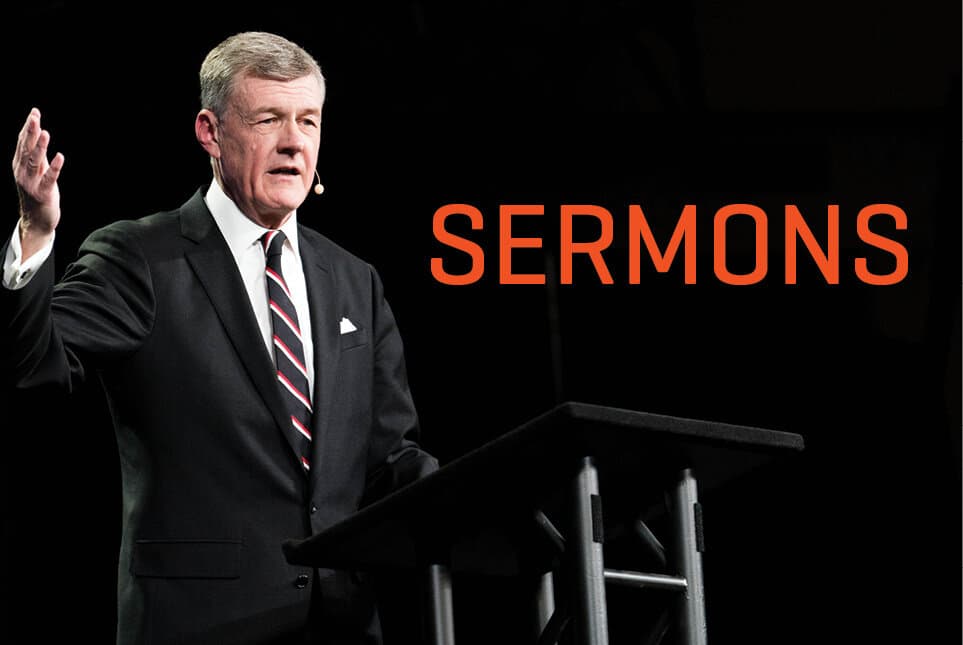A R T I C L E S
Featured

Many names are used to refer to God in the Bible. Each one is more than a mere title for His deity, but reveals a specific aspect about His holy being and perfect character. God is so infinite that no one name can communicate the whole of His divinity.
The two main names used for God in the Old Testament are “LORD” and “God.” Both are vitally important, and both are found in this one verse: “The Lord of hosts is with us; The God of Jacob is our stronghold” (verse 11). These two names for God reveal different aspects about who He is and what He is like. This verse is a word-for-word repetition of verse 7, which was used earlier in this psalm, making this a resounding chorus. This repeating refrain re-enforces the emphatic God-centered focus of this worship song.

We live in a complex and trouble-filled world, where we often find ourselves faced with threatening problems far beyond our control. These gathering storms can suddenly break upon our lives and make it impossible for us to escape. They are beyond our ability to resolve and, consequently, bring us to our knees. God then steps onto the scene and rescues us from our hour of crisis. Surely, you can relate to times like this in your life.

From cover to cover, the Bible portrays God as the Almighty, the One who possesses all power over the world. When the Lord exerts His infinite strength, no human resistance can withstand Him. When He unleashes His limitless might, the forces of hell bow before Him. When He faces opposing forces, He reduces them to nothing.
In Psalm 46, the psalmist paints a picture of this awesome power that belongs to God. He writes, “He makes wars to cease to the end of the earth; He breaks the bow and cuts the spear in two; He burns the chariots with fire” (verse 9). Here, God is seen as the all-victorious Warrior, who comes to the defense of His people.

God never sits idly in heaven, a mere passive spectator of world events. He is not distantly removed, never off duty, never abdicating His throne. He does not abandon the world to run its own course. Instead, God remains on the throne, ever alert, ever active, continually intervening into human history.
This is the truth the psalmist affirms in Psalm 46, when he writes: “Come, behold the works of the LORD, who has wrought desolations in the earth” (verse 8). By this open invitation, he calls the people of God to contemplate the mighty works He has performed on their behalf.

We often think of God as being high and lifted up, towering in the heavens, full of majesty. David writes, “The Lord has established His throne in the heavens, and His sovereignty rules over all” (Psalm 103:19). To be sure, God identifies Himself as the Most High, exalted over all. This is the truth of His divine transcendence.
But God is also, at the same time, immanent. That is, He is near and close to us, every moment of our lives. Being omnipresent, there is no place where God does not exist, from the heights of heaven to the depths of the earth. He is with the angels above and the saints below, both in heaven and on the earth.

Every true believer affirms the grand truth that God exercises supreme authority over all world events. Nothing occurs randomly. Good luck or bad luck do not exist. Blind fate is not real. Chance occurrences are impossible. God alone reigns.
This raises the question: what is God’s relationship to evil and the adversity it creates in the world? Is He a mere passive spectator from His throne? Or does He reign over the dark trials that threaten us? Does He ever choose to intervene in human affairs and reverse them for our good?

Do you find yourself surrounded by threatening pressures? Do you believe there is no way to survive your present difficulties? Are you about to collapse under the fear of the future? If so, the psalmist has an assuring message of hope for you.
In Psalm 46, the author recalls the help he found in the Lord. He writes, “God is in the midst of her, she will not be moved; God will help her when morning dawns” (verse 5). Could there be a greater promise for your beleaguered soul?

Difficult circumstances produce challenges and pressures that can lead us to despair. In such overwhelming times, we quickly realize that we are not in control of what threatens us. We become acutely aware that we are at the mercy of God—which is the greatest place to be.
In Psalm 46, the author reflects upon the greatness of God in the midst of adversity. He meditates upon how strong the protecting care of God proves to be in his difficulty.

In times of great difficulty, we often feel like the ground is shaking beneath our feet. It may seem like the world is collapsing around us. Nevertheless, there is one sure foundation that will never be moved—found in God Himself.
In Psalm 46, the author found himself in such an earthshaking time of upheaval. He wrote, “Therefore we will not fear, though the earth should change and though the mountains slip into the heart of the sea; though its waters roar and foam, though the mountains quake at its swelling pride (verses 2-3).

If you are a student of church history, you know the significance of Psalm 46 and the important role it played in the Reformation—arguably the greatest movement in the church since the first century.
The primary leader of this Protestant movement was the German reformer Martin Luther, who wrote “A Mighty Fortress is Our God.” Based on Psalm 46, this inspiring hymn has become perhaps the greatest worship song ever written. Luther penned this hymn as a result of how this psalm impacted his own life, during a debilitating time of extreme crisis.








